Spreading the message of God’s love comes in a variety of methods and styles, including educational opportunities and congregational ministries for all, plus local, regional, and global mission and outreach projects.
Our Ministries
For all members: specific information, volunteer opportunities and news, log in to the member portal.
Christian Formation
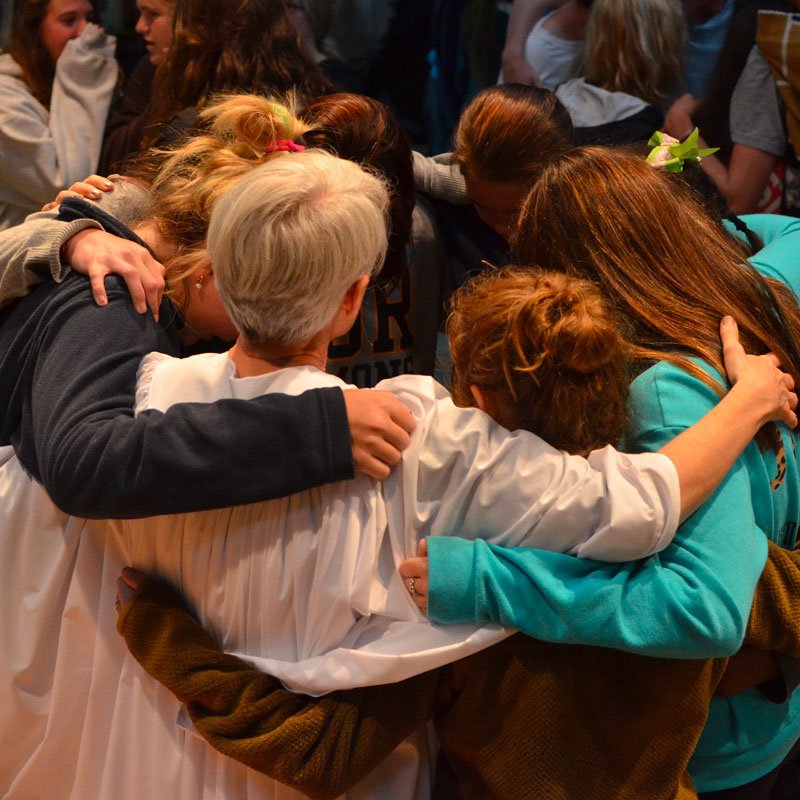
Home Moravian Church Christian Formation oversees the following ministry areas:
- Children’s Ministry (0-10 years)
- Youth Ministry (11-18 years)
- Adult Ministry (18 + years)
- Wednesday Night Fellowship Programming (September – May)
If you have any questions, please contact Becky Hodges.
The mission of Home Moravian Church Christian Formation is to provide ministry opportunities for all people to:
- develop a personal relationship with Jesus Christ,
- experience growth in their faith formation journey,
- respond to the call of discipleship,
- and serve those in our church, community, and world.
The Bible says that Christian formation is the process of being conformed to the image of Jesus Christ for the glory of God and for the sake of others (II Cor 3:17-18). It is the work of the Holy Spirit in our lives that grows us into the image and character of Jesus and equips us to be His disciples.
The mission of Christian Formation at Home Moravian Church is to offer ministries that encourage a personal relationship with Christ, recognizing the need to develop people of genuine Christ-like character.
We are meant to be in relationship with God and others in a way that is dynamic, whole, and fresh every day (John 17:24, 2 Cor 4:16) – a relationship that extends beyond church services into every part of our lives. Christ desires to be with us and help us so that even when our bodies are weak, our spirit is strong. Christian Formation is a lifelong journey of faith, “which opens our hearts to a deeper connection with God. We are not bystanders in our spiritual lives, we are active participants with God, who is ever inviting us into relationship” (Renovare.org).
Educational programs (such as Sunday School) are a vital part of our purpose. We offer Christian education to help people study and grow in the knowledge of our Christian faith. Along with education, we offer opportunities that help all people form their faith, deepen their relationship with God, and live like true followers of Jesus – in His image.

Thank you to all our ministry team members serving in Faith Formation (Christian Education)!
- 2023-24 Home Moravian Church Christian Formation Committee
- 2023-24 Children’s Ministry Team
- 2023-24 Youth Ministry Team
- 2023-24 Adult Education Leaders
- 2023-24 Wednesday Night Fellowship Program Planning Team
To contact any team member, please visit the Member Portal for details.

At Home Moravian Church, we believe that no one is too young to be influenced by God’s work and the love of Jesus Christ.
From our smallest infants to our growing 5th graders, we seek to lay foundational biblical truth while guiding children in building relationships with each other and with Jesus! HMC Kids partners with parents and invests in children to raise authentic followers of Christ. Through creative environments, Bible lessons, prayer, relationships, and Godly Play we help to connect faith with life right where kids are.
Jesus said, “Let the little children come unto me.”
The Children’s Ministry seeks to help children learn, grow, serve, and share Jesus.
We Value Your Child
We believe even though kids are small, they can achieve big things for God. We seek to partner with parents to help children, birth through 5th grade, become disciples of Jesus who LOVE, GROW, SERVE and SHARE. We invite your child to come and experience a safe and creative environment where they will encounter the life-changing story of God.
Click here for more complete information about Sunday School classes for children, infants through 5th grade.
HMC Kids: Mission, Vision & Core Beliefs
Our Mission: “Called by Christ to love, nurture, and empower children to be lifelong followers of Jesus.”
Our Vision is that every member of Home Moravian Church takes seriously and acts on the promises made in the sacrament of Baptism.
Therefore, The Children’s Ministry at Home Moravian Church engages children and their families in a life-giving ministry of worship, study, service, and fellowship where all children and their families…
- are embraced with love, patience, and respect,
- are connected to the entire church family,
- grow in their knowledge of the Bible, Moravian heritage, and the Christian Church,
- are nurtured in their spiritual formation.
Core Beliefs
- We embrace all children.
- We reflect the love of God.
- To provide spiritual formation for our children is a vital responsibility of the church.
- It is our responsibility to provide a safe and respectful environment for all children.
- Children must be nurtured spiritually so they may grow in the faith and retain that faith as they grow older.
- Children should be given an opportunity to practice and share their faith through acts of service to others.
For contact information, visit the Member Portal.

Children’s Music
Children’s Music is for ages 5 to 11. Children are invited to sing in services throughout the year, including Christmas!
For more information, contact Becky Hodges, Director of Christian Formation
bhodges@homemoravian.org, 336-722-6171 ext. 109 or
Glenn Siebert, Director of Music
gsiebert@homemoravian.org, 336-722-6171 ext. 107.
“Called by Christ to engage youth in Christ-centered fellowship, service, and study.”
Welcome to HMC Youth! We are happy you are here. If you are in middle school or high school, this is your place at Home Moravian Church. HMC youth is a place where your questions are welcomed, friendships are nourished, creativity is encouraged, and service is essential. Our Youth Ministry team is “called by Christ to engage youth in Christ-centered fellowship, service, and study.” We seek to empower you with the strength of Christ, nurture your relationship with God, and provide tools for you to understand the Bible. Through weekly Bible study, youth retreats at Laurel Ridge, Mission Camps in the summer, game nights, and service projects, we will guide you to walk in the love and light of Jesus Christ throughout your life.
Youth Special Events
The HMC Youth Program holds special events for all youth grade 6-12 throughout the year. We believe that giving youth the opportunity to fellowship together in a Christ-Centered environment is of utmost importance.
- Making Dumplings
- Collage Night
- Night of Fire Project
Youth Fun & Fellowship
Youth parents open their homes throughout the year. These weekend outings offer the opportunity for fun & fellowship together.
Service Projects
One of the biggest service projects for HMC youth is the weeklong mission camp at Laurel Ridge. Each summer, youth participate in working alongside other youth from across the area serving the surrounding community.
Youth Power Hour
Each week, youth meet following worship for a time of study and discussion known as “Power Hour”. This fall, Home Moravian Youth will use the curriculum “Generation Why”. Generation Why is an all-in-one curriculum that guides youth and their leaders on a journey for meaning and identity. Generation Why also encourages youth to encounter and explore Scripture to make it their own. We would love for you to join us each week from 11 a.m. until noon.
Confirmation
“In the rite of confirmation, those baptized in infancy publicly confess their faith in Jesus Christ as Lord and Savior.”
– Church Order of the Unitas Fratrum
Confirmation is a powerful event in the life of a Christian: a movement from childhood to maturity in the life of faith.
When a person is baptized as an infant or young child, parents and/or sponsors assume responsibility for the child’s faith formation. As children mature, the church asks them to consider taking those responsibilities upon themselves, through the rite of confirmation. At confirmation, a “child under care of the church” becomes a full communicant member.
Those wishing to be confirmed go through a period of instruction, which Home Church offers in 7th grade and above. Children grades 7-12 will receive an invitation to join a confirmation class each year that a class is offered (typically once every two years).
Confirmation class is typically offered as a series of retreats and other events designed to build bonds between our youth as we equip them for their continuing journeys of faith.
If you have questions about confirmation, contact one of our Home Moravian Church pastors or email Reverand Ginny Hege Tobiassen.
“Called by Christ to live in community, continually learning and growing together as disciples of Christ.”
All Are Welcome at Home
For the fall semester of 2024, Home Moravian Church has some exciting adult learning opportunities on Sunday mornings.
For more information, contact Becky Hodges, Home Moravian Church Director of Christian Formation bhodges@homemoravian.org or 336-722-6171.
Bible Discussion Class
The Bible Discussion Class meets each Sunday after worship in the Club Room. This class is led by Reverend Rick Sides, Reverend Tim Byerly, Reverend Tom Haupert, and Elizabeth Sides. If you desire to delve deeply into scripture, then this class is for you! Online participation is available through Zoom each week Bible Discussion Zoom Link.
Feasting on the Word Class (Formerly Scripture Encore)
Feasting on the Word is the title of the curriculum that this class uses each week. The Feasting curriculum is developed by the Presbyterian church of America. It provides education leaders with commentary by religious scholars on one or more of the lectionary scriptures for that week. There are also resources, with suggestions on how to present the scriptures and commentary to our adult participants. We hope you will join us. Historically our discussions can be quite lively. We always come away with a deeper understanding of the Bible and what it means for our daily lives. Online participation is available by Zoom. Feasting on the Word will resume in the fall.
Introduction to Moravian Theology with Rev. Dr. Craig Atwood
Join us for a weekly journey through Moravian theology starting with John Hus and ending with our current doctrine. We’ll learn about the Moravian “essentials”, John Amos Comenius, Count Zinzendorf, and modern Moravian doctrine. Each week, the class will be recorded as a podcast for those not in attendance. The podcasts will be made available online after each class meeting. Podcast Link
Church Family Life
Church Family Life includes activities that bring our church family together and enrich our lives. Through our many ministry teams, we facilitate large and small group gatherings, both on-going and one-time events, that help deepen relationships with one another.
The Home Moravian Community Engagement Team (CET) was formed in late 2022 to explore new opportunities for increased engagement within our Winston-Salem/Forsyth County community.
The CET has been focused on forming a new group in Winston-Salem/Forsyth County. Home Moravian Church has been invited to join with local faith communities and nonprofit organizations to deepen relationships and address community needs. This effort comes through a local working group temporarily called “the Forsyth Sponsoring Committee” (FSC). The Sponsoring Committee is building a broad-based organization to strengthen community relationships and collectively identify and address community concerns.
Throughout 2023, the CET held over 50 individual one-on-one meetings with Home Moravian Church members to identify hopes, dreams, and concerns for Forsyth County. Home Moravian Church members support our congregation’s involvement in this new group, and the Board of Elders voted to join the Sponsoring Committee. As of March 2024, 27 faith communities and nonprofits have joined the Committee, with several others in discernment. CET members have participated in several hours of leader training: please note, ALL participants in this organization are called “leaders”!
Steps for 2024 include listening sessions with groups within our congregation and among participating organizations. Home Moravian Church members will be invited to join community gatherings.
The Community Engagement Team members as of March 2024 are: Bob and Martha Veto, Paul and Cathryn Morse, Karen Bell Chandler, Debbie Drake, John Mickey, Bob Hunter, Ginny Hege Tobiassen, Dave and Betsy Bombick and Page Dancy.
Home Moravian Church: Faith & Justice
Home Moravian Church members have long supported justice and advocacy in many ways (financial support of many organizations, Mission Committee efforts, and the Community Engagement Team).
Here are some recent examples:
- Formation of the Community Engagement Team.
- Summer 2020 Social Justice Zoom group, with sessions on social, racial, environmental, and economic justice.
- Lenten Sunday school classes.
- Informal Racial Justice group which shares experiences and resources through Zoom meetings and emails (contact Betsy Bombick to be added to the email list).
- Spring 2024 “Faith and Justice” Sunday School class led by Dave and Betsy Bombick, exploring the intersection of our Christian faith with justice and advocacy. The class uses several resources to discuss types of justice (for example, economic, racial, and environmental). We are sharing experiences and information about local opportunities and discerning potential ways to become more involved.
Attention Members: For contact information or to learn about joining one of these ministries, visit the Member Portal.
Bereavement Teams – Brings comfort to members and their families by providing a meal delivered to the home or by serving light refreshments during the family visitation in the Parlor or in the Fellowship Hall.
Close to Home – Coordinates with the thirteen neighborhood chairs to facilitate gatherings and other ways to connect with Home Moravian Church resident members who live in their designated neighborhoods.
Congregational Care – Nurtures and supports members of our Home Moravian Church family by expressing comfort, support, encouragement, and congratulations through cards, phone calls, and visits. Meets monthly.
Decorating – Decorates for special occasions, including receptions and meals for events such as the Church Family Christmas Party. The team also coordinates volunteers and gathers supplies to decorate the gravestones in God’s Acre at Easter.
Hospitality Team – Plans, prepares, and serves meals for special Home Moravian Church events and occasions, as needed.
Laurel Ridge Day – Plans a day of worship and activities for church members, which takes place annually at Laurel Ridge Camp and Conference Center.
Prayer Shawl Ministry – Provides knitted or crocheted shawls or lap robes for those in need of comfort during times of illness or special challenges, and handcrafted baby blankets are given to all newborns in the congregation.
Prayer Tree – Receives prayer requests through email for Home Moravian Church members, their families, or friends.
Sanctuary Flowers – Manages the flower calendar. Following each Sunday worship service, the sanctuary flowers are divided into smaller arrangements to be delivered to Home Moravian Church members who are homebound, sick or recovering, have lost a loved one, or who may be celebrating a special occasion such as a marriage, milestone birthday or new addition to their family.
Senior Friends – Anyone over the age of 55 is invited to participate in this ministry of fellowship, listening, and exploring how to live our years to the fullest.
Wedding Team – Works with church staff and the couple being married to coordinate the wedding ceremony at Home Moravian Church.
Wednesday Night Fellowship Chefs – Pans, prepares, and serves meals for our Wednesday Night Fellowship programs, which take place weekly from September to May.
Welcome Team – Has three volunteer opportunities: Greeters, Visitor Contact, Sitting with New Members.
To sign up and help serve your church family in any way that you can, or to learn more, log in into the Member Portal.
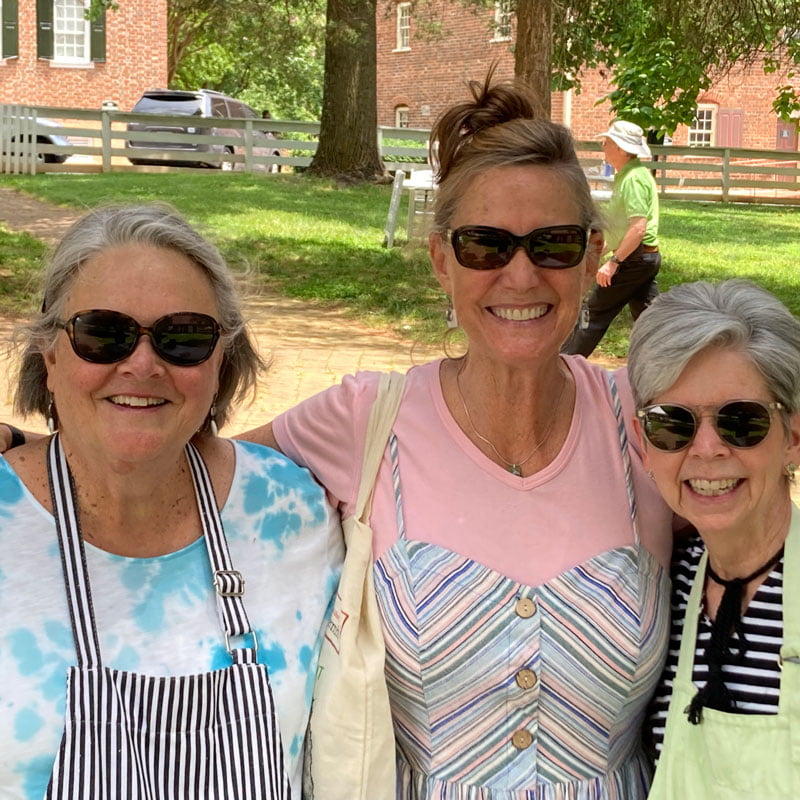
Men of the Church
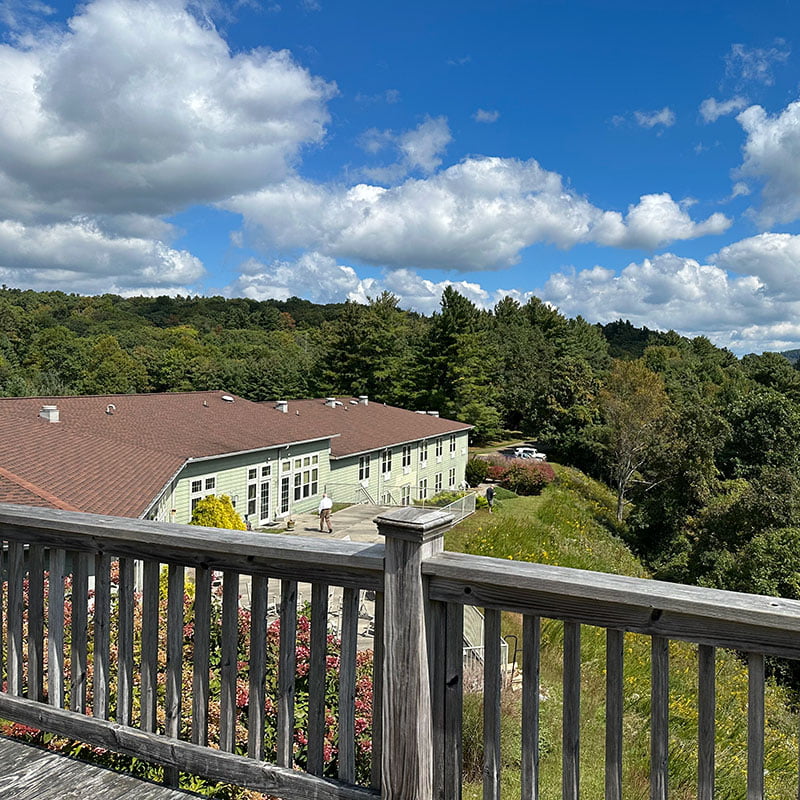
Men of the Church (MOC) is an important ministry of Home Moravian Church, offering opportunities for fellowship and service for men of all ages.
These opportunities include prayer groups, annual Fall Men’s Retreat (usually held in late September or early October) at Laurel Ridge Camp & Conference Center, annual golf outing and cookout (usually held in May), and regular MOC Breakfasts with a speaker (open to all). The making and selling of Moravian beeswax candles provides fellowship as well as service to the community, with proceeds supporting several agencies and special projects such as:
The Men of the Church have periodic early Sunday morning breakfasts during the year from 8:00 a.m. to 9:30 a.m., with a guest speaker and special program usually planned. The next breakfast has not been scheduled as yet. Check back with us as the summer and fall seasons approach!
The 2025 Men of the Church Retreat is scheduled for September 26 – 28 at Laurel Ridge Camp, Conference, & Retreat Center. The Rev. Russ Williams will serve as our retreat leader. Russ grew up in the Trinity Moravian congregation and most recently served as the pastor of New Beginnings Moravian Church in Huntersville. Previously, Russ served the Moravia and Union Cross congregations. Russ is also a member of the Laurel Ridge Board of Directors where he serves as the chair of the Development Committee.
The theme of this year’s retreat is “Following Jesus in the face of pervasive negativity in the world”.
Russ will lead us as we search for answers and find inspiration from the critically acclaimed TV series “Ted Lasso”. Ted Lasso is an American football coach that finds himself serving as a Football (Soccer) coach in England. Coach Lasso will take us on a weekend journey, creating a playbook of gospel proportions to defeat the negative opposition.
Please contact Ray Gatland, Retreat Coordinator, for more information and to register. Scholarships are available.
Music & Worship
Music is a major component of the Moravian experience! Our music ministry programs include a choir that sings most Sundays, the Men’s Chorus that typically sings once per month, children and youth singers, instrumentalists, the Gregor Bellchor, and a Moravian band consisting of brass and woodwind players that sing and play for special services. For more information, contact Glenn Siebert, Director of Music.
The Band is an integral part of the music and worship of Home Moravian Church. They play a prelude of chorales prior to worship in celebration of special occasions during the church year, including Holy Communion and our Moravian lovefeasts. Also during seasonal celebrations during the year, including Christmas, Easter, Epiphany, Pentecost, and Advent.
In addition, the HMC Band plays for funerals as requested by families and participates with bands from the Salem Congregation churches in the annual Easter Sunrise Service. The Home Moravian Church Band is open to all players of brass and woodwind instruments. Instructional band classes are held beginning each fall for both new and experienced band musicians.
Want to see what being in the Band is like? Come stand with us on one of our preludes (no reservation needed!). Look over a player’s shoulder, or stand beside the leader and mimic their actions (pretend you are four years old again!). Come to one of our rehearsals and just sit in – with or without an instrument.
- Do not know how to read music? It is not magic, and there is little mystery!
- Do not have an instrument? We have a lot, and we are ready to loan out!
- Want to learn how to play? We can help connect you with a teacher and supply scholarship funds for lessons!
- Cannot commit to every rehearsal and every prelude? Neither can anyone else! Take a look, and in every prelude, you will see a lot of the same people, but not all of them. Some just come a few times a year, others almost every time we play.
Click here for additional information about the history of the Home Moravian Band.
For more information about the Home Moravian Church Band, please visit the Member Portal.
Music, and particularly congregational singing, is a major component of Moravian liturgy and worship. Our music ministry programs include an adult choir that sings most Sundays and a men’s chorus that generally sings once per month.
HMC Choir
Membership is open to all in the congregation. There is no audition. A pleasant singing voice and a willing spirit are all that is needed. Basic sight-reading ability is helpful but not required. This choir of dedicated and fun-loving people provides anthems for most of the Sunday morning worship services. The choir season begins in August and continues through May. The choir performs for our Christmas lovefeasts, the Good Friday Lovefeast, and other special services during the year. Rehearsals are held from 6:30 to 7:30 p.m. on Thursday evenings, August through May.
The Men’s Chorus, which consists of tenors and basses who sing two, three and four part anthems, generally singing once a month. The chorus sings at a Christmas lovefeast and during Holy Week. Rehearsal is held on two Thursday nights each month at 7:30 p.m. You do not have to be a member of the regular choir to participate.
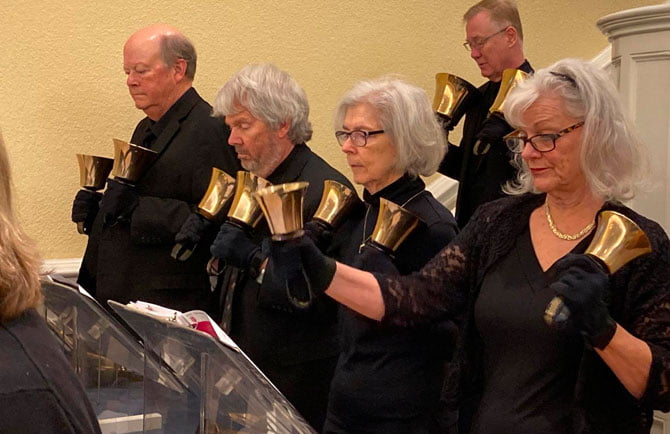
The Gregor BellChor is a handbell choir of 10 to 12 ringers playing 3 to 4-octave handbell music, much of it unpublished original works and arrangements. The BellChor enhances the worship experience of the congregation and collaborates with other musicians and worship leaders.
Gregor BellChor is a group of dedicated and hard-working musicians committed to serving Christ and contributing to the congregational need for inspirational and worshipful music. At the same time, they enjoy the fellowship and teamwork of a high-caliber musical ensemble. The ringers rehearse weekly, for about 9 months of the year and play for several worship services each year. Contact Erik Salzwedel for more information.

The Music@Home Concert Series, is operated, managed and produced by a volunteer committee, that reaches out and invites the community in by presenting free musical concerts of the highest quality to uplift souls, inform minds, and inspire hearts.
The Series presents musical concerts, in two worship spaces, the Saal and the Sanctuary. Home Moravian Church gives audiences the opportunity to support the Series, no ticket or donation is required.
The Series identifies Home Moravian Church with the legacy of early Salem, Bethlehem and Wachovia, where high value was placed on music presented in worship, and concerts were ubiquitous throughout the settlements.
The Music@Home Concert Series welcomes all, providing opportunities for invitation, fellowship, enrichment, and church growth. The Series increases Home Moravian Church’s visibility and demonstrates its relevance in a new way. It builds outside interest and trust in Home Moravian Church for the future by teaching, leading and encouraging music as a part of spiritual life.
Check our calendar for upcoming concerts, or follow us on Facebook.
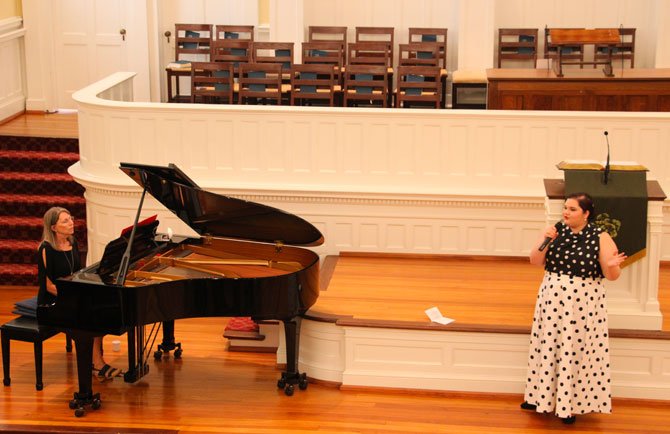
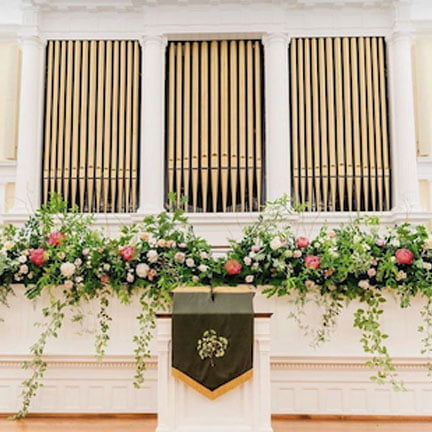
Stewardship 2025
“We view all of life as a sacred trust to be used wisely”
–Moravian Covenant for Christian Living
Stewardship emerges from the timeless wisdom found in the Moravian Covenant for Christian Living: “We view all of life as a sacred trust to be used wisely.” This statement helps us recognize that everything we have – our time, talents, resources, relationships – is a gift from God, entrusted to us for a purpose. This powerful statement will guide our stewardship journey in 2025.
Commitment Sunday, is October 19, 2025.
Time & Talent
“Faith completed in love” is a theological grounding in the Moravian Church. We complete our faith in loving action. God makes loving action possible by generously blessing us with time and talent. With glad and generous hearts, we offer these gifts in service as our response to God’s love for us.
Look here for more on and Outreach page. Members, log into the Member Portal for more details on service opportunities.
Treasure
Members log into the Member Portal for information on pledging, planned giving, and donations to designated funds or to contact our staff with questions about giving.
The Stewardship Committee deeply appreciates the pledges, gifts and time given to support the life of Home Moravian Church. In 2024, we asked that you “dare to be generous” in your giving to support our financial needs, and we’re amazed at the response. As of 3/15/2025 we have received 234 pledges totaling $680,270, and our hearts are full of gratitude for your generosity.
As we enter a new season of reflection and commitment, we are embracing timeless wisdom from the Moravian Covenant for Christian Living: “We view all of life as a sacred trust to be used wisely.” This statement helps us recognize that everything we have – our time, talents, resources, relationships – is a gift from God, entrusted to us for a purpose. This powerful statement will guide our stewardship journey in 2025.
Stewardship is often thought of in financial terms, but it is so much more. It is about how we care for the people around us, how we nurture our faith, how we use our skills in service, and even how we care for creation. It is reflected in the kindness we show, the commitments we honor, and the way we invest in the ministries and missions that share God’s love.
We invite you to reflect on what it means to you to view life as a sacred trust. How does that show in the stewardship of your own life? Perhaps it shows in taking a meal to someone who is sick; tending a garden and sharing the bounty; teaching children; leading by example at your workplace; or sharing wise counsel from your experience. These are just a few ways in which can be good stewards of the lives God has given us.
In the weeks ahead, we’ll be collecting and sharing stories from our congregation that demonstrate the many dimensions of stewardship. By sharing these stories, we inspire one another to recognize and embrace our own opportunities for faithful stewardship. We invite you to email our stewardship chair, Bev Moore, at bmooore52@gmail.com to share your story or highlight examples of others living out this calling.
Together, let us celebrate and deepen our understanding of life as a sacred trust.
-The Stewardship Committee
Practicing Whole Life Stewardship and Staying Faithful in Today’s World
-A Webinar by Laura Sides Watson, MMFA
Program Description: In an era marked by uncertainty and anxiety, it’s easy to feel overwhelmed. From financial concerns to personal struggles and global unrest, it can be hard to know how to live faithfully and generously.
This program, “What’s a Steward to Do?”, explores the concept of whole life stewardship, offering practical wisdom on how to navigate today’s waters in ways that honor God and help you find meaning and wholeness.
It breaks down the key areas of whole life stewardship, looks at best practices for cultivating a stewardship mindset, and identifies healthy steps you can take to align your day-to-day actions with God’s calling on your life.

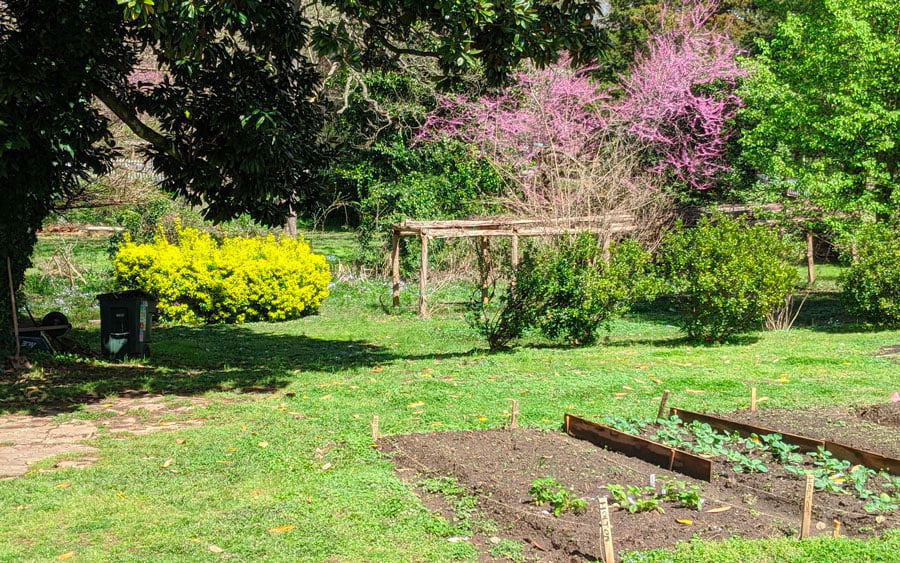
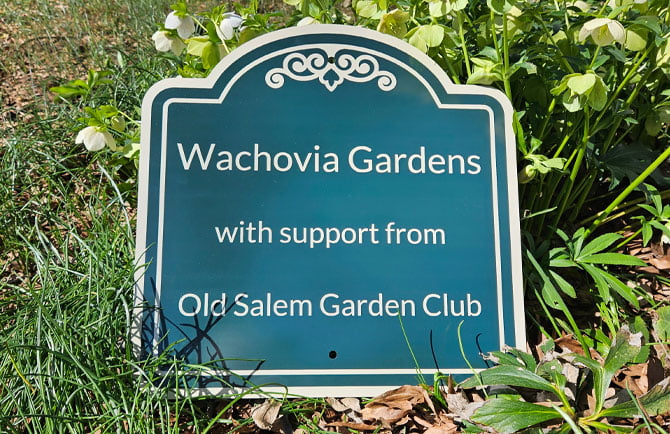
Now in its 14th year, gardeners hope to contribute 1,300 pounds of produce to Sunnyside Ministry in 2024. Wachovia Garden has seven beds for vegetables, including bee and butterfly gardens for the pollinators. The gardeners list includes 16 individuals, averaging 4 to 8 gardeners per session. Gardeners meet every week during the year on Tuesday evenings from 4:30 p.m. to dusk (during Daylight Saving Time) or Saturdays from 10 a.m. to noon (fall and winter).
We practice sustainable gardening techniques, including no pesticides or herbicides, successive plantings from spring through fall/winter, and use of some heirloom varieties. Our most aggressive sustainability effort is to add quality mulch to enhance the soil. We also rotate crops on an annual schedule.
We have a schedule of seasonal plantings that takes advantage of the weather:
- In the spring: Romaine and other lettuces, spinach, kale, collards, turnip greens, sweet turnips, radishes, Egyptian walking onions.
- In the summer: tomatoes, pole beans, cucumbers, sweet and hot peppers, butternut squash, spaghetti squash, summer squash, zucchini, sweet and regular potatoes.
- In the fall: (for harvest in the winter and early spring) lettuces, spinach, kale, collards, turnip greens garlic, radishes.
To help make the garden financially sustainable, we cultivate other plants for crafts beyond the produce for Sunnyside. This includes:
- grapes (for the vines)
- herbs (for drying)
- lavender (for lavender pillows)
- figs (for jam)
- garlic (for garlic braids)
- gourds (for birdhouses)
- and beeswax (for candles).
These items are used in our “Supported by Donations” program.
Some gardeners come with experience, while others just want to learn. Some gardeners want to get their hands dirty, while others cannot and prefer to work with crafts. There is room for all. Some tools are available. All you really need is a pair of gloves. Our team of gardeners is expanded by guests from the local court-ordered Community Service Program. Stop by to meet the gardeners.
Donation Supported
For non-gardening volunteers or individuals who love community, fellowship, working together, and sunshine in a beautiful place, consider helping Wachovia Garden become self-sustaining.
We make grapevine wreaths, craft gourds into birdhouses and bowls, make garlic braids, dry and package herbs, make lavender pillows, and prepare jellies and jams. This year we are adding greeting cards.
We welcome volunteers when we have “Supported by Donations” events, when we show off the bounty of Wachovia Garden.
Home Moravian Church is blessed by gifts from past members who created planned gifts to benefit the life and mission of the church. Thanks to their planning and generosity, Home Church’s many ministries have grown and continue to thrive.
Forever Home is one way to do ministry through planned giving. Forever Home is a fund established so that present members can ensure that future generations will benefit from their stewardship. What a blessing it is to know that through planned giving, our resources can serve God beyond our individual lifetimes.
To assist with planned giving decisions, Home Church is delighted to work with the Moravian Ministries Foundation in America. The Foundation is an interprovincial ministry of the Moravian Church and a one-of-a-kind resource for connecting Moravian values to charitable giving. The planned giving services of the Foundation are free, confidential, and without obligation.
We all recognize a simple truth: a viable congregation needs an abundance of resources to thrive. As those who have been abundantly blessed, we are able to share in and support the vital ministries of our faith community forever.
For more about Forever Home or other planned giving opportunities, contact the Moravian Ministries Foundation in America at mmfa.com or 336-725-2589.
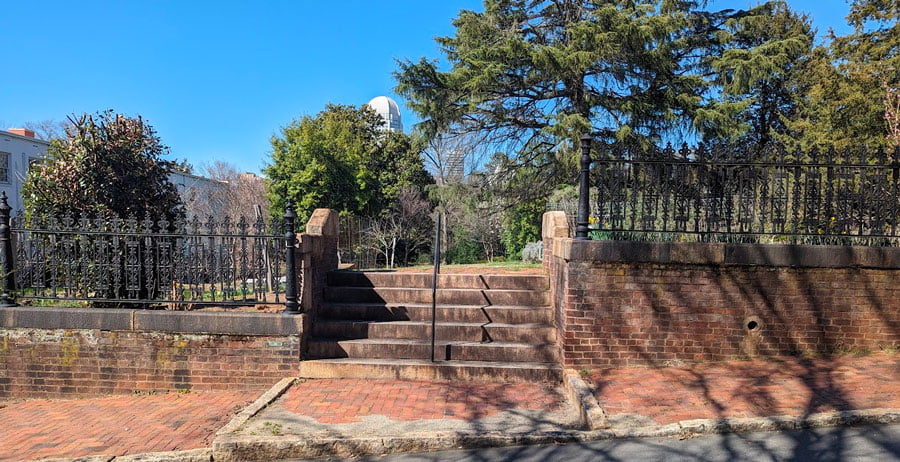
Wednesday Night Fellowship
“Called by Christ to deepen our relationships, engage in fellowship, and be of service to others.”
Wednesday Night Fellowship is a place where we can meet with each other exactly where we are. It is a weekly opportunity to…
- Engage in fellowship with one another and join at the table in a spirit of friendship, love, joy, and belonging.
- Deepen relationships with each other and with God by spending time together in prayer, song, study, and play.
- Connect our unique gifts with the community through acts of service.
- Embrace our diverse community and the world around us.
Core Beliefs: God desires to have a deep relationship with us. It is our responsibility, as individuals and as a church, to provide opportunities for Christian fellowship, discipleship, and spiritual growth.
We are called to promote life-changing opportunities that engage us in deep, transformative, and bold conversations that build trust and purpose for working together and respecting our differences.
We acknowledge that all people have unique spiritual gifts to offer.
All are Welcome Home to the table.
Check the Calendar for topic, or log in to the Member Portal.
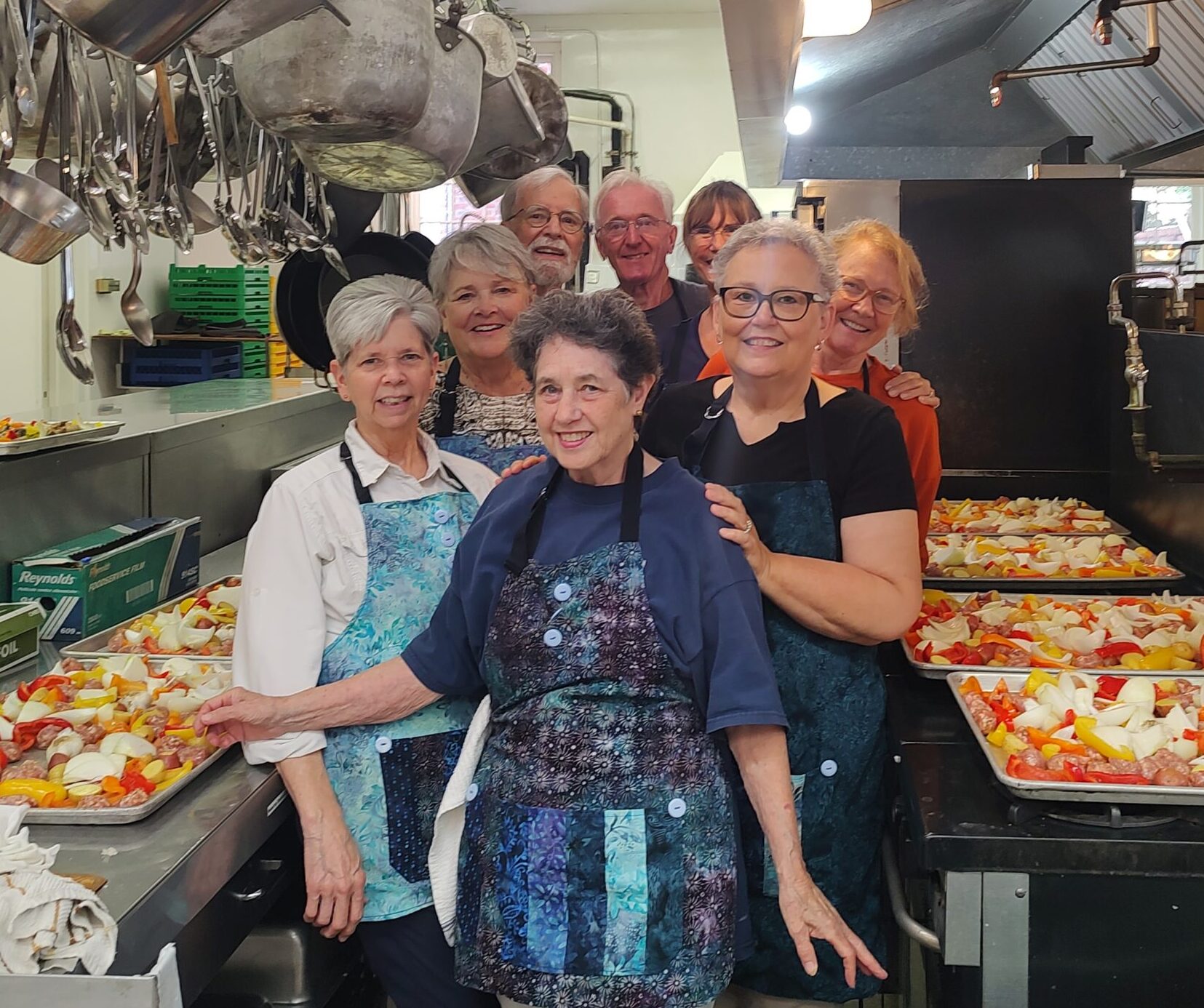
Women’s Fellowship
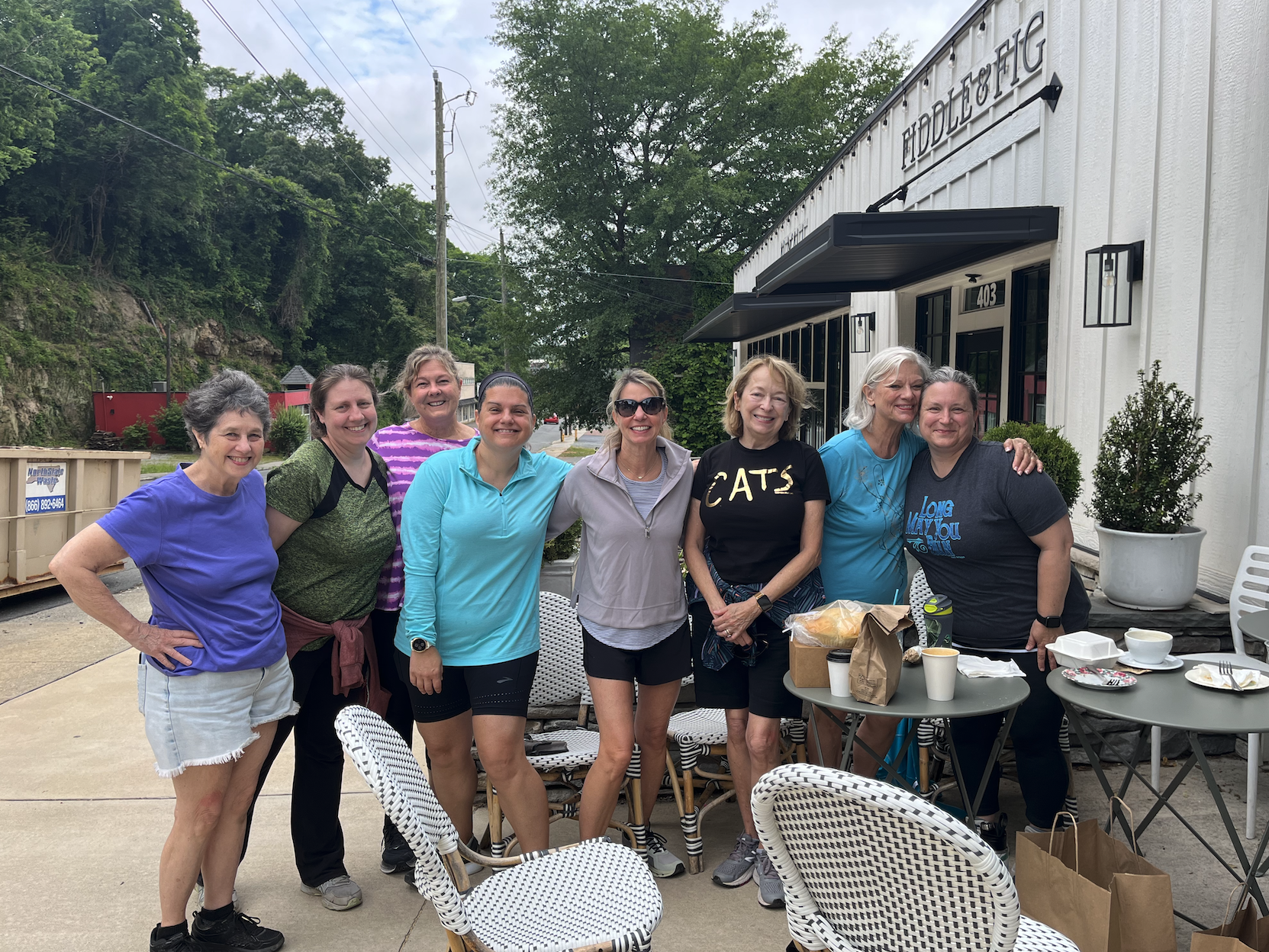
The Home Moravian Church Women’s Fellowship works to deepen relationships with God and one another through Christian fellowship and service to all.
Candle Tea
The Home Moravian Church Women’s Fellowship sponsors the annual Candle Tea, held during the first two weeks of Advent. This ministry involves many volunteers and is enjoyed by thousands of community visitors.
Church members share their Moravian history and faith with singing, candle-making, coffee, and traditional Moravian sugar cake. The Candle Tea concludes with the Salem Putz and hearing the beautiful Christmas story while viewing the Nativity. Proceeds are shared with community missions and agencies.
Check back in 2025 for registration information.
Women’s Fellowship Circles
Circles provide opportunities for fellowship, spiritual growth, and service to the church and the community within a small group.
Members: for contact information, visit the Member Portal.
For All Members, the Home Moravian Church Member Portal contains information about various church functions, events, committees, and more. Signing up is easy! Simply complete the registration form, and when you are verified as a member, you will be granted access using your own log in credentials. If you need assistance, contact the Home Moravian Church office at skatona@homemoravian.org.
The Men of the Church have periodic early Sunday morning breakfasts during the year from 8:00 a.m. to 9:30 a.m., with a guest speaker and special program usually planned. The next breakfast has not been scheduled as yet. Check back with us as the summer and fall seasons approach!


